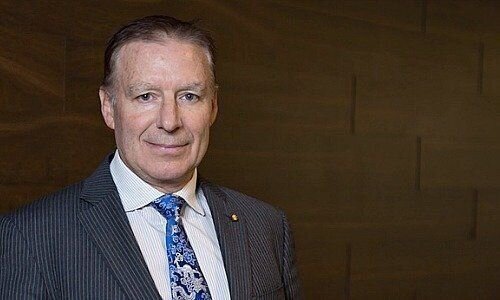David Solo was more hands-on at a quantitative investment house co-owned by Credit Suisse than previously reported, finews.com has learned. He and his co-founder wrote the code underpinning the start-up's technology.
The move was sudden: Zurich-based Credit Suisse last month quietly folded Simag, an ETH spin off for quantitive investment solutions using physics, complex self-organizing systems, deep learning, and behavioral finance, into another boutique it oversees.
The move marked the end of a high-profile venture around co-founders Didier Sornette (pictured below), a French mathematician and risk expert, and David Solo, a shy U.S. computer scientist-turned-Swiss banker. Sornette has left Simag's board but will continue advising the team in the new set-up, he told finews.com.
No Longer Invested
Solo, who ran fund house GAM until 2015 and chaired Simag until it was folded, reportedly invested in the company as well. Like Sornette, he remains an advisor but isn't invested in SG Value Partners, the Credit Suisse vehicle into which Simag was merged.
Sornette and Solo were far more active than simply overseeing and advising: both men actively worked on developing the algorithms underpinning the venture's technology, according to a person familiar with the start-up. «As chairman at the time, David Solo was also involved in continuing the development of the model,» a spokeswoman for Credit Suisse told finews.com.
No Stranger To Coding
Sornette, on whose research Simag's technology was based, confirmed this: «The algorithm that feeds the artificial intelligence of the Simag strategy has been personally devised by David Solo and me, with the help of the team,» he said.
Solo, an MIT graduate, is no stranger to writing code: he researched at two labs while at the prestigious private technology university (one on machine-optimized search algorithms and one on a type of fiberoptic communications systems used in the military).

Meeting Of Scientists
Few bankers have been as involved at the highest level of Swiss finance for as long as Solo, who has never granted an interview (finews.com called him a «phantom» of the industry in July). His influence is legendary: he was just 32 when he emerged in 1997 as operating chief of SBC Warburg, the prestigious British merchant bank UBS' predecessor bank had bought two years before.
Solo headed for Julius Baer in 2005 as part of UBS’ sale of three private banks and asset manager GAM. In 2009, the wealth manager spun out GAM as a publicly-listed company – with Solo as CEO of the operating company (he added CEO of the holding in 2013). Through his C-suite career, Solo retained the personality first and foremost of a curious scientist – something he shared with Sornette.
Dark Year For Quants
The smart machines and ETH supercomputer couldn't prevent Simag's strategies from being swept up in the financial market's tumble in March, when the pandemic hit. As with many algo-based quant funds, 2020 proved a dark year for vehicles based on learning lessons from past crashes.
Sornette, who founded a scientific platform at ETH aimed at studying financial market inefficiencies, calls this «frustrating,» especially under the restrictions Simag was forced to operate. As an institutional fund, the vehicle needed to be invested long in stocks and couldn't hedge positions.
«Because of this long-only-setting, the fund has not been able to avoid the crash in March, although it was affected to a lesser degree,» Sornette said. Simag's team had in December identified a bubble in equity markets and even warned of potential setbacks – but were hamstrung from leaving the market. Sornette noted that the fund returns were positive year-to-date.
Simag: Damage Done
The damage, however, was apparently done: as a young start-up with 150 million Swiss francs ($164 million) in assets and a short track record, Simag seemed at risk of failing to win demanding investors like pension funds and insurers. Simag's relatively high cost base, relative to its assets, may have also contributed to Credit Suisse folding the fund into SG, a value-based equity fund.
Credit Suisse denies spending had anything to do with the decision: «The fully licensed platform is not just operationally highly efficient and professional, but can also easily be scaled up.» As a result, it made sense to expand the existing offering with more strategies. For Sornette, the father of Simag's quant strategy, the renewed effort offers promise: «The constraints are personally frustrating for me an I hope that hedging will be possible in the future.»




































